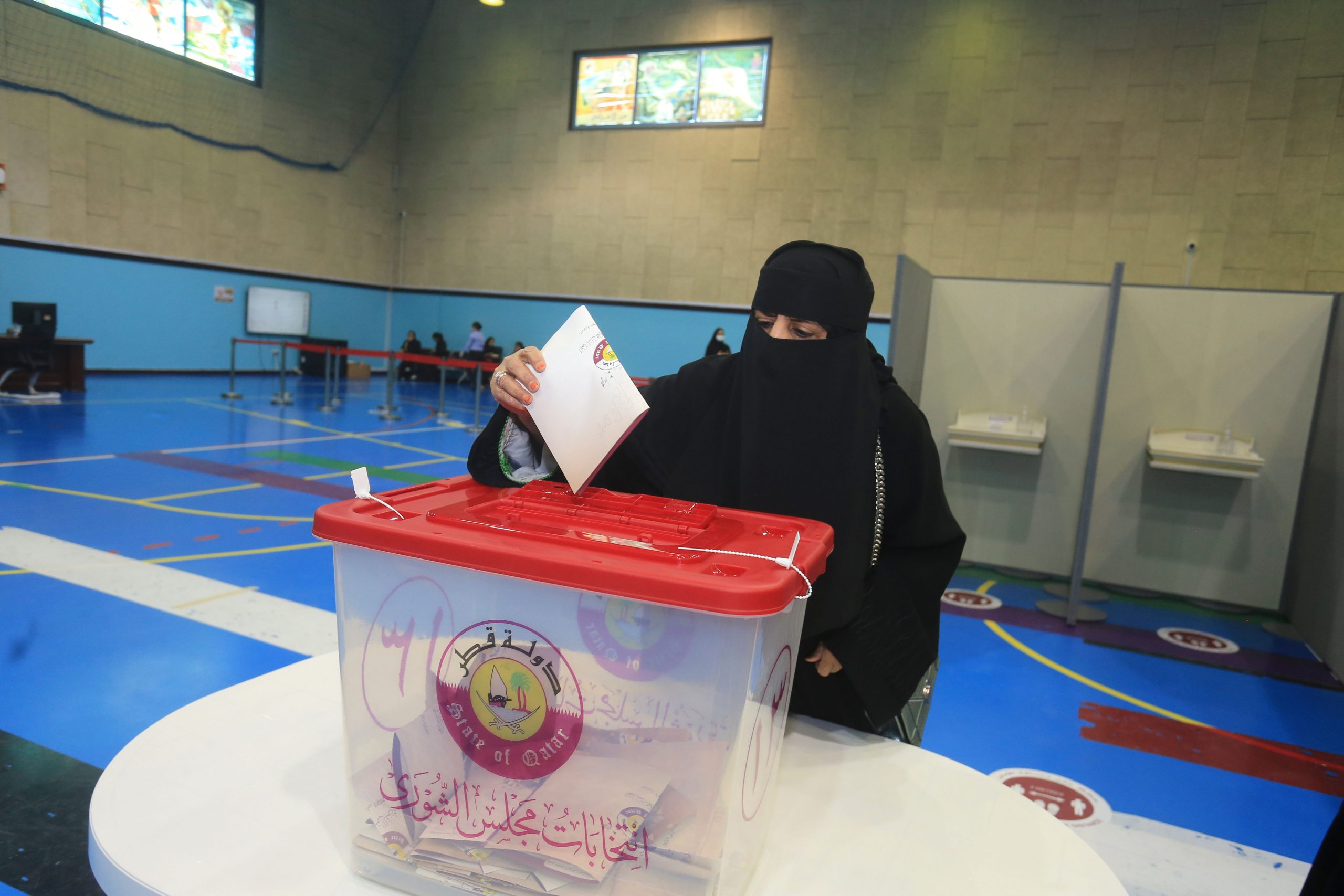Not one of the 26 women who stood for elections in Qatar’s first
legislative elections held Saturday could find place in the 45-seat Shura
Council. The elections were held for 30 seats of the Shura Council, an advisory
council that can approve a limited scope of policies for the country. The
remaining 15 seats will be filled by the emir’s appointees.
Aisha Hamam al-Jasim, 59, is a nursing manager by profession. She had
decided to represent her community in the Shura Council and the results of
Saturday’s elections have left her disappointed. “To have all men is not the vision
for Qatar,” she told Reuters, calling upon women to voice what they believe in
and vote for strong women in future.
“This is the first time in Qatar, this is the opportunity to take part in
the political,” said Jasim. Jasim, like many of her other female fellow candidates,
had come across several people who believed that women should not run for the
polls.
Also Read | In a first, Qatari citizens get a limited taste of democracy
Upon being asked what she wanted to tell them, Jasim said, “I just say;
I’m strong, I’m capable. I see myself as fit as a man…If you want to see me as
week, that up to you, but I am not weak,” she said. The 59-year-old political
hopeful also highlighted her administrative skills and said she would have focused
on health, youth employment and retirement if she had been elected.
Qatar, one of the only countries in the Arabian Peninsula that does
consistently well on human development indicators, has introduced several
reforms in recent years for women. While women can get driving license independently,
the country’s guardianship system limits access to rights around marriage,
travel and reproduction.
Also Read | Don’t turn your back on Taliban: Qatar to the world at UNGA
Naima Abdulwahab al-Mutaawa’a, a candidate and a foreign ministry worker
whose elderly mother had come to vote for her, said that she wanted a body
advocating for women and children. Many of the women candidates were seeking to
improve Qatari society of children of foreigners who, like in other Gulf
states, cannot pass their Qatari nationality to their children.







